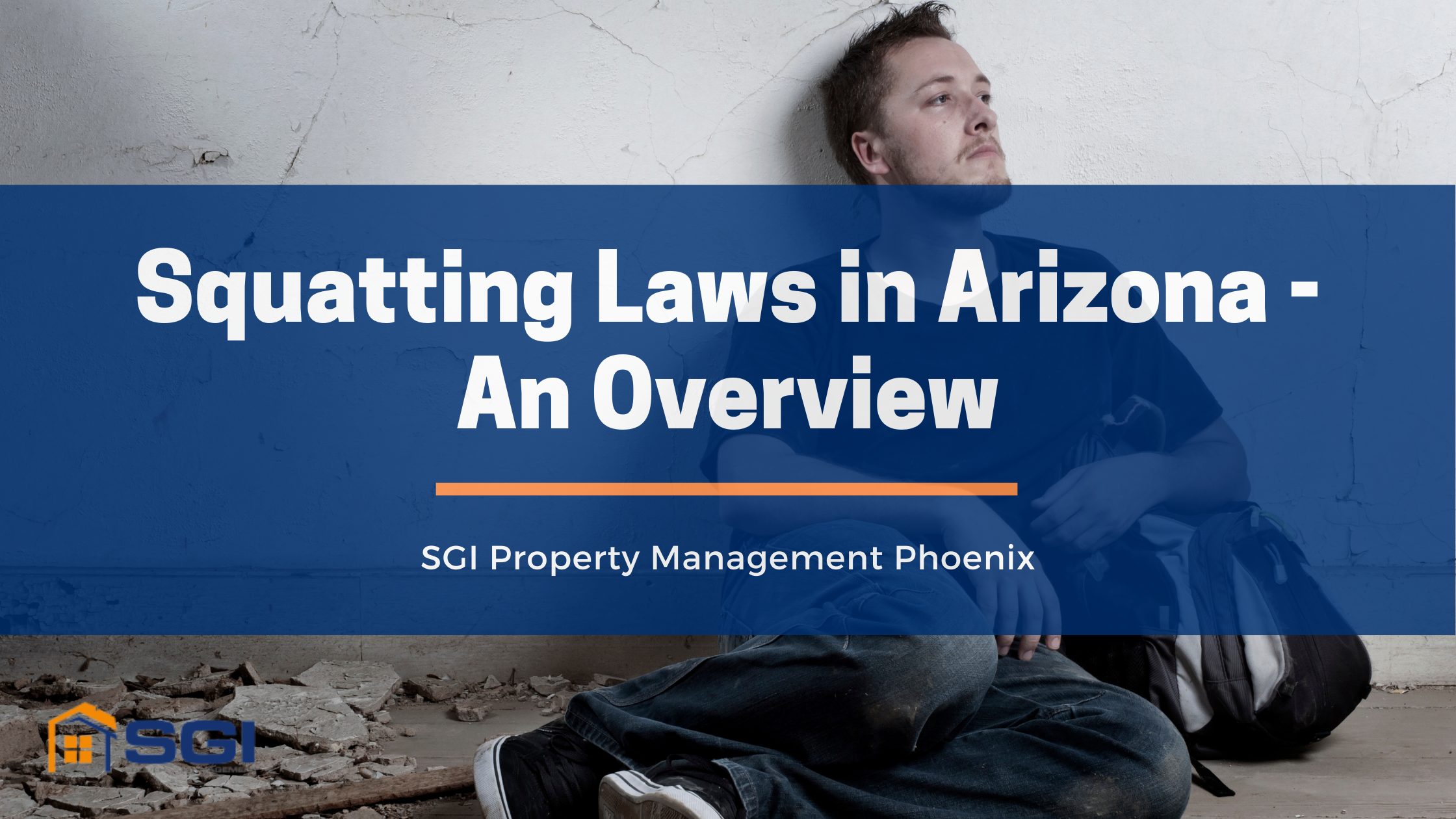
Do Squatters in Arizona Have Rights?
Yes, like in all other US states, Arizona squatters do have certain rights by law. Basically, a squatter may be able to legally acquire the property they are squatting on if they meet a certain set of conditions.
Upon meeting those conditions, the squatter will become the property’s legal owner. For this reason, property owners in Arizona need to familiarize themselves with squatter’s rights to prevent a squatter from taking possession of their property!
What Requirements Must a Squatter Meet to Obtain Squatter’s Rights?
Under Adverse Possession laws, a squatter in Arizona must meet certain requirements to claim a property.
The following are the requirements.
The Squatter Must Meet the Required Occupation Time.
After a squatter has lived on a property for a certain period they acquire some rights. In the state of Arizona, it takes anywhere between two and ten years for a squatter to file an adverse possession claim.
The specific occupation time needed varies depending on individual circumstances. Because of this, adverse possession is rarely straightforward in Arizona.
The following are examples of some circumstances and their required occupation times.
- If the trespasser has a color of title, then the minimum time to make a legal claim is 3 years for a rural property. For a property in the city, the minimum period before claiming adverse possession is 5 years.

- For a squatter with no claim or color of title, the required period of occupation is 2 years.
- If the squatter has proof of payment of taxes, then the period of occupation is 5 years.
- If the squatter paid taxes and cultivated the land, the period of occupation required before an adverse possession claim is 5 years.
- For occupancy with cultivation only, the minimum period is 10 years.
It’s also important to note that these time requirements must be continuous. In regards to squatter’s rights, continuous means that the entire occupation time must be uninterrupted. The squatter must not have left the property for any length of time before making a claim. (ARS § 12-522 et seq).
There is a Limit to How Much Land One Can Claim.
Unlike other states, Arizona has restrictions on how much land a squatter can claim under adverse possession. In specific terms, a squatter cannot claim land exceeding 160 acres.
The Occupation Must be Hostile.
When it comes to property law, the term hostile takes on three definitions. However, Arizona only recognizes one of them. In Arizona, there is no correlation between the intent of a squatter and adverse possession. This differs from some states, where a squatter isn’t required to know that they are trespassing.
The Squatter Must be Physically Present on the Property.
Legally gaining possession of a property through squatting requires that the trespasser be present on the property and treat it like an owner would.

To show proof of this, a squatter may need to show the maintenance they’ve done during their stay. If a squatter has been maintaining or making improvements to the property, like by repairing the roof or plumbing, the required time of occupation changes.
If they have made improvements and paid taxes, the required time for adverse possession reduces to 5 years. If they have cultivated the land and not paid taxes, the required time extends to 10 years.
The Squatter’s Occupation Must be Obvious.
A squatter wishing to claim a property adversely needs to make their occupation obvious. They must not try to hide it or they forfeit their right to claim the property.
The Occupation Must be Exclusive.
The squatter must be the only one occupying the property. If they happen to be sharing it with others, that disqualifies their claim.
How do You Remove Squatters from Your Arizona Property?
In Arizona, property owners can challenge an adverse possession claim in multiple ways. One of the ways is by filing a quiet title lawsuit. You can do this either during the occupation or after learning of the adverse possession claim.
It’s a simple legal action that instructs a court to confirm the actual property owner and disqualify any adverse possession claims. It’s important to note that as a landlord, you have up to 3 years to challenge an adverse possession claim.
Another way to remove a squatter from your property is by using the guest removal law. This gives the landlord power to immediately remove any person who isn’t named on the lease.

All you need to do is call the police to remove them. (ARS § 33-1378). Last but not least, you may be able to get rid of a squatter using the state’s eviction process.
In Arizona, there are different eviction notice types you can serve the occupant. (ARS § 33-1368).
They are as follows.
- 5-Day Notice to Pay. This gives an occupant an option to either pay overdue rent or move out within 5 days.
- 5-Day Notice to Comply. This gives tenants 5 days to fix any damage they have caused that impacts their safety or health.
- 10/30-Day Notice to Quit. These evictions are for holdover tenants. The 10-Day Notice to Quit applies to tenants on a weekly lease and the 30-Day Notice to Quit applies to tenants on a monthly lease.
- Unconditional Quit Notice. This notice type doesn’t allow the correction of a violation. It applies to specific situations, such as when an occupant has partaken in illegal drug activities, discharged a weapon, or knowingly engaged in activities related to prostitution.
If the squatter has engaged in the illegal activities listed above, you may have grounds to issue them an unconditional quit notice.
How Can You Prevent Squatters from Entering Your Property?
There are numerous steps you can take to prevent squatters from entering your property.
They include:

- Hiring a property management company
- Routinely inspecting the property
Bottom Line
At SGI Property Management, we’re well versed with Arizona landlord-tenant laws including laws related to squatter's rights. Additionally, our comprehensive suite of rental management services will ensure your property is cared for and rented to a reliable and responsible tenant.
For more information about our services, contact us today!
Disclaimer: This information is not a substitute for professional legal advice. Laws change and this blog might not be updated at the time of your reading. If you have questions or need further assistance, please get in touch with a qualified attorney or an experienced property management company.









